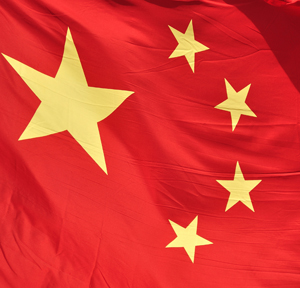WM Market Reports
EDITORIAL ANALYSIS: The Challenge, Opportunity From China's Billionaire Explosion

Last week's UBS/PwC report contained many interesting elements, with the astonishing rise of Chinese billionaires as arguably the standout.
The recent UBS/PricewaterhouseCoopers report on the rise in the number and wealth of the world’s billionaires contained several features, but few are more striking than the rapid ascent of China.
While not without its risks and issues – China remains a Communist-run nation and all that fact implies – the Asian country’s explosive growth can be reflected by how 89 Chinese entrepreneurs became billionaires for the first time in 2017. That is three times more than the 30 who were minted in the US during the same year, or the 34 created in Europe, the Middle East and North Africa. China’s market is also young: Some 17 per cent of new Chinese billionaires founded businesses less than 10 years ago; in the US, the comparable share is 7 per cent. To put the figures into a global context, 199 self-made billionaires were created in 2017.
Some other statistics grab the eye, and push back at populist calls for swingeing wealth taxes to enforce equality. Far from being passive recipients of great fortunes, over the past 40 years almost 80 per cent of the 40 main breakthroughs have been driven by people who are billionaires today. About 70 per cent are technology-related and 80 per cent of the companies behind them are based in the Americas, with 20 per cent in Asia-Pacific, the report said. Billionaires are behind the personal computer revolution, smart phones, the internet and e-commerce, social networking and GPS systems. And these are markets where scale of market is also critical: these are segments in which billions of people participate. Even if a person pays a few dollars a month for such services, the men and women driving these business changes reap huge individual rewards.
As PricewaterhouseCoopers explain: “Many entrepreneurs are also growing businesses through scaling them up, especially in Asia’s fast-developing, huge markets such as China, India and Indonesia. As people move to the cities and join the middle classes, so consumer markets are growing quickly. They are easily accessible through e-commerce that breaks down physical distances.”
I was struck by the level of detail in this report, reflecting as it does, I suspect, UBS’ clear determination to be the banker of choice for this billionaire population. The study looked at where the 199 new billionaires of 2017 came from and what they did to make their money. Some 22 per cent (28 billionaires) of the 127 Asia-Pacific billionaires made money in consumer and retail, but only 1 per cent did so in tech, and the largest share – 25 per cent (22 people) – did so in industrials. By contrast, some 16 per cent of 38 American billionaires (6 persons) made money in tech, highlighting how Silicon Valley and other hotspots in the US have an edge – for now.
Some big names are in the report: among the newbies is Chris Larsen, co-founder and executive chairman of Ripple, the Californian firm using blockchain technology to change the global payments sector. (Blockchain is a distributed ledger enabling peer-to-peer transactions without the need for third-party authentication, and is most associated with crypto-currencies such as Bitcoin.) Another joiner to the billionaire party is Wang Jian, co-founder of BGI, a Chinese gene-sequencing company, demonstrating how modern science is part of what is driving this ultra-wealthy cohort. In the more traditional field of foodstuffs, where scaling a business is important, Wan Long, chairman and CEO of WH Group, is the world’s largest processor of pork and producer of pigs.
The authors of the report are also keen to stress how “different” China’s new billionaires are. For a start, they are on average younger than their international peers. The average age is 55, versus 64 for the world as a whole. This explains in part, the authors say, why these billionaires are so open to disruptive change because otherwise they risk losing their edge.
“They transform their companies repeatedly. For example, the country’s e-commerce giants have moved into finance, offering money market products with higher interest rates than banks. But the climate of unremitting invention means that the flip-side of rapid wealth creation is sudden loss of wealth,” the report said.
Of course, these reports have to bear in mind that there are flies in the ointment, such as the protectionist turn of the Trump administration and associated geopolitical tensions arising from Beijing’s attempt to consolidate its naval presence in Asia. China’s one-child policy, loosened only a few years ago, will create headaches for billionaires considering whether handing all their wealth to one son or daughter is viable. Meanwhile, the fact that so many wealthy Chinese are keen to acquire foreign residency and passports under “golden visa” regimes is not simply because they are status symbols and an aid to globetrotting: future political ructions in China mean that having an exit plan makes sense. (See an associated comment here.)
Even so, the rise in the number of Chinese billionaires is impressive. UBS, and some of its big-brand international peers want a large slice of this space. They are likely to continue emphasing their credentials as full-service banks, with investment, commercial and private banking firepower under one roof, plus their ability to offer a global reach and big bench of analytical and advisory talent. Their work in helping wealthy families to create family offices and other structures will most likely be significant in creating revenue makers in the years to come. Their hunger for this market also explains their spending on branding: for the time being, UBS still considers sponsorship of big events such as the Formula 1 motor racing series good value.